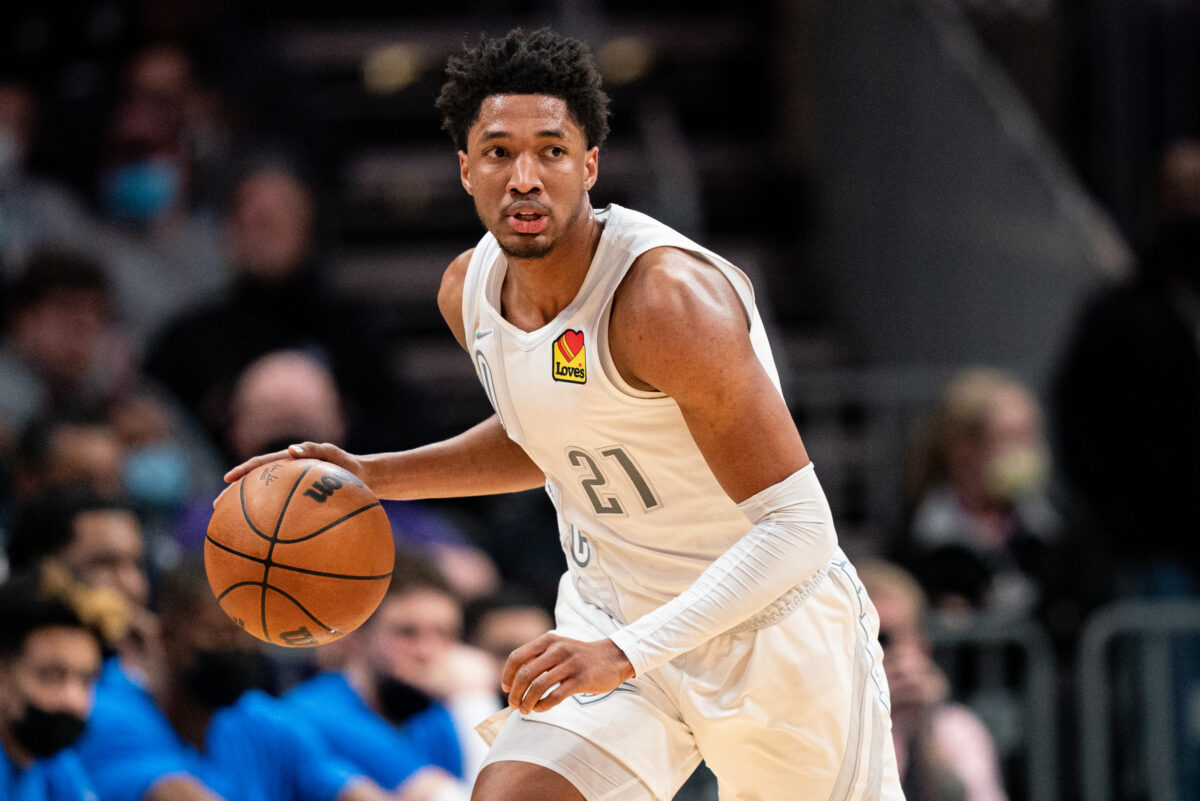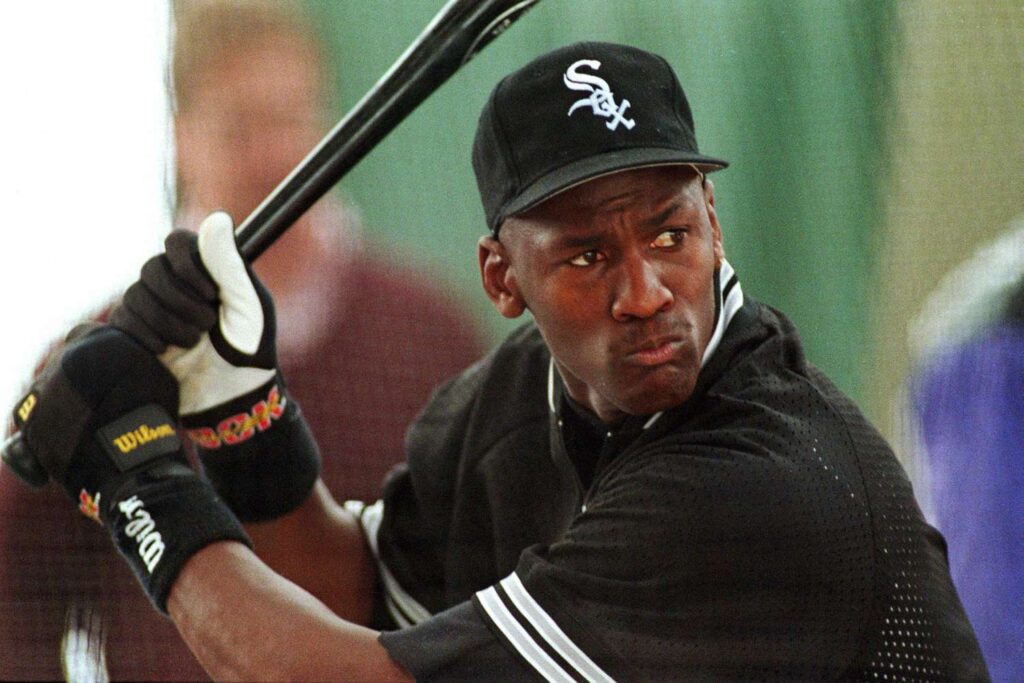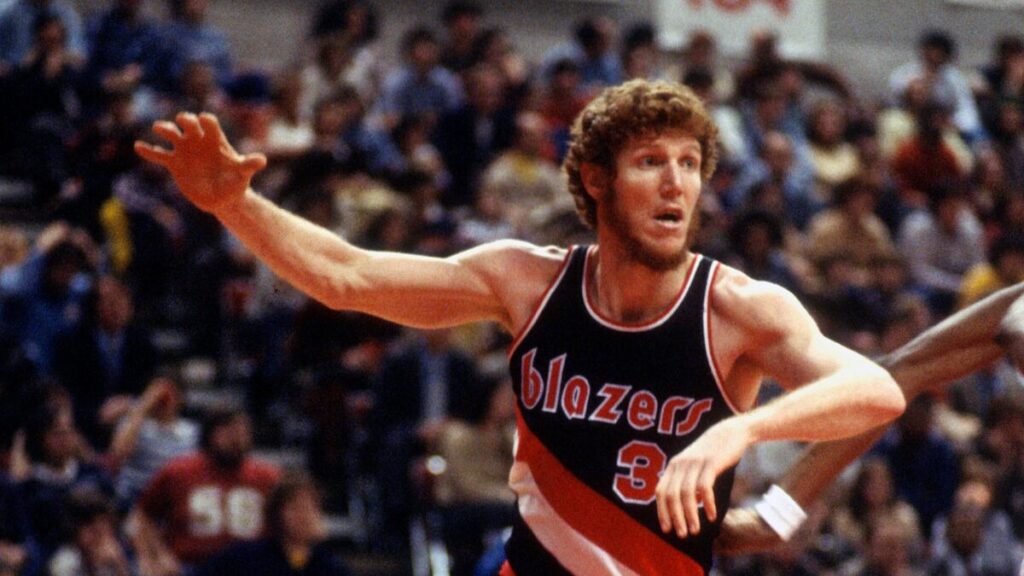
Have you ever wondered what goes on behind the scenes when NBA players sign their contracts? It’s not all about the base salary and playing minutes. Some players have had bizarre, out-of-the-ordinary contract clauses that are simply too intriguing to ignore.
In this blog post, we’ll dive into the world of the strangest NBA contract clauses, from Michael Jordan’s dual-sport deal to weight clauses and unlikely award contenders. Get ready for a wild ride through the lesser-known side of NBA contracts!
Michael Jordan’s Dual-Sport Deal
Michael Jordan, the Chicago Bulls legend, had some unique contract clauses during his career. One notable example is the “Love of the Game” clause, which allowed him to play basketball outside the league, including exhibition games. This freedom to enjoy basketball in any setting, even just a pickup game, was a testament to his passion for the sport.

Not only was Jordan a basketball icon, but he also dabbled in baseball. He had a sweet deal with the minor league team of the Chicago White Sox, owned by Jerry Reinsdorf, who also owned the Bulls. Jordan was paid a whopping $4 million for playing baseball with the White Sox. Talk about a dual-sport superstar!
Bizarre Incentives and Bonuses
Some NBA players had strange incentives and bonuses in their contracts. For example, Tony Battie, a former Nets player, would get an extra $100,000 if he played in 50 games and averaged eight rebounds, plus another $100,000 if he averaged five free-throw attempts in those games. Unfortunately, he never met these requirements, only managing 1.8 free throw attempts and 6.5 rebounds at his best.
Another peculiar incentive was in Matt Bonner’s contract. Bonner was promised an extra $100,000 if the sum of his three-point shooting percentage, free throw shooting percentage, and field-goal shooting percentage equaled 169. Unfortunately, he fell short of achieving this goal.
Even some star players had strange incentives. Baron Davis, a former Clippers player, was offered a million-dollar payout as a bonus. Surprisingly, he qualified for the bonus even though he wasn’t on the All-Star team.
Weighty Matters: The NBA’s Weight Clauses
Weight clauses have been a part of NBA contracts to encourage players to maintain a healthy weight. Glen Davis, a former Boston Celtics player, had a $500,000 weight loss challenge in his contract. These clauses aimed to motivate players to keep a healthy weight and consequently perform better on the court.

However, not everyone sees weight clauses as a positive addition to NBA contracts. Critics argue that these clauses could potentially harm players’ mental health and create an unhealthy focus on weight management rather than overall health and performance.
Despite the controversy surrounding weight clauses, their existence in NBA contracts showcases the league’s desire to maintain a high level of performance and wellbeing for its players.
Unlikely Award Contenders
Some NBA contract clauses have offered money for winning awards to players with little chance of actually winning them. For instance, Nick Collison’s contract included a clause that awarded him an extra $100,000 if he ever won the NBA Most Valuable Player award.
Another example is Luke Ridnour, who would receive a cool $1.5 million if he won Defensive Player of the Year. These clauses might seem far-fetched, but they undoubtedly provided extra motivation for the players to strive for greatness.
While it’s unlikely that Collison or Ridnour would ever win these awards, their inclusion in the contracts highlights the fact that anything is possible in the world of professional sports. After all, who doesn’t love an underdog story?
Off-Court Perks and Restrictions
Off-court perks and restrictions can also be found in NBA contracts. For example, Steve Novak, a former New York Knicks player, wasn’t allowed to own a dog due to his allergies. He was in trouble if he got caught with something. He had to donate $100,000 as a consequence.
On the other hand, Bill Walton, a former San Diego Clippers player, had a special request in his contract: eight tickets to each of Bruce Springsteen’s seven sold-out shows at The Sports Arena that October. These unique clauses showcase the diverse range of off-court interests and needs of NBA players.

These off-court perks and restrictions not only add an interesting twist to NBA players contracts, but also serve to remind us that NBA players, who compete in high-stakes games like the nba finals, are human beings with interests and needs beyond the basketball court. As fans delve into nba history, it becomes evident that these aspects have always played a significant role in the lives of players.
Athlete Lifestyle Clauses
Athlete lifestyle clauses, a type of contract clause, are used to control players’ behavior and protect their health. Dez Bryant, a former NFL player, had a strict set of rules in his contract, including no alcohol, twice-weekly counseling, a private security team, a midnight curfew, and no strip clubs. Another example is Stefan Schwarz, a former soccer player, who was barred from taking any space travel flights in his contract with Sunderland.
These clauses might seem controlling or excessive, but they serve an important purpose: ensuring the wellbeing and longevity of the players’ careers. By regulating behavior and protecting their health, teams can maximize player performance and minimize potential issues off the field.
Final Words
From Michael Jordan’s dual-sport deal to weight clauses and unlikely award contenders, the world of NBA contracts is filled with fascinating and sometimes bizarre clauses. These unique contract stipulations offer a glimpse into the lives of professional athletes and the lengths teams will go to keep their players happy, healthy, and motivated. As fans of the game, we can’t help but be intrigued by these lesser-known aspects of professional sports and the captivating stories they reveal.
Frequently Asked Questions
What NBA players have no-trade clauses?
Ten NBA players have been granted no-trade clauses in their contracts, including LeBron James, Carmelo Anthony and Bradley Beal. These ten players represent a who’s who of basketball greats, so it will be interesting to see if Beal’s no-trade clause is the last of its kind.
How did Bradley Beal get a no-trade clause?
Bradley Beal secured a no-trade clause in a contract extension he signed with the Washington Wizards after his ninth NBA season. He is the only active player with such a clause.
Did Bradley Beal have a no-trade clause?
Bradley Beal does have a no-trade clause, as part of a contract extension he signed following his ninth NBA season in Washington. He is the only active player with a true no-trade clause.
What was Michael Jordan’s “Love of the Game” clause?
Michael Jordan’s “Love of the Game” clause allowed him to play basketball outside the league, even in pickup games.
This clause was unique to Jordan and allowed him to continue to play the game he loved, even when he was no longer in the NBA.
What was the weight clause in Glen Davis’ contract?
Glen Davis had a $500,000 weight loss clause in his contract with the Boston Celtics, ensuring that he maintains an optimal weight.
Sources
1. bleacherreport.com – 7 Most Ridiculous Contract Clauses in NBA History
2. clutchpoints.com – The 15 most absurd contract clauses for players in NBA history
3. basketballnetwork.net – Top 5 most interesting contract clauses in NBA history
4. fadeawayworld.net – 15 Weirdest NBA Contracts And Clauses Ever





